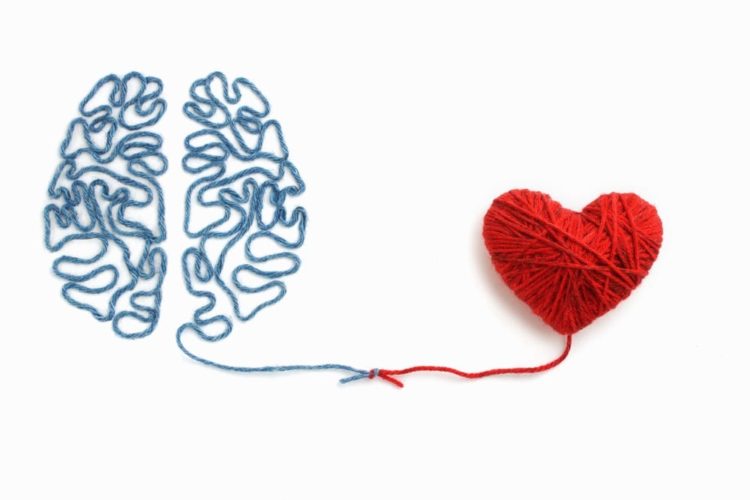Last Updated on May 24, 2022 by Editors Desk
This subject is at the center of a heated discussion about the relative relevance of cognitive (IQ) and emotional intelligence (EQ) (EQ). Some proponents of “book smarts” argue that IQ is the most important factor in determining how well people do in life. Those who advocate for the need of “street smarts” would argue that EQ is even more crucial. Which is it, then?
The IQ vs. EQ Debate: What’s the Difference?
Author and psychologist Daniel Goleman stated in his book Emotional Intelligence that EQ (emotional intelligence quotient) may be more significant than IQ. Why? Some psychologists feel that typical intelligence measurements (such as IQ scores) are overly limited and do not capture the whole range of human intelligence.

Howard Gardner, a psychologist, has proposed that intelligence is more than a single general skill. Instead, he proposes that there are several intelligences and that people may excel in several of them.
Rather than relying on a single, universal intelligence element known as the g factor, some experts feel that the ability to comprehend and express emotions can be just as essential, if not more so, in determining how people do in life.
The Difference Between Intelligence Quotient and Emotional Quotient
What are the methods for determining and testing IQ and EQ? A standardized intelligence test yields a number known as the intelligence quotient, or IQ. The first IQ tests computed scores by dividing a person’s mental age by their chronological age and multiplying the result by 100.
An IQ of 150 would be achieved by a youngster with a mental age of 15 and a chronological age of 10. Most IQ tests now determine a test taker’s score by comparing it to the average score of other persons in the same age group. IQ is a measure of abilities such as:
- Processing of visual and spatial information
- The world’s knowledge
- Reasoning that is fluid
- Working memory and short-term memory are two types of memory.
- Quantitative analysis
The ability to sense, control, analyze, and express emotions is referred to as emotional intelligence. Emotional intelligence has been a trendy topic in domains ranging from business management to education thanks to researchers like John Mayer and Peter Salovey, as well as writers like Daniel Goleman. EQ is focused on talents like :
- Recognizing emotions
- Observing how others are feeling
- Self-control is the ability to control one’s own emotions.
- Observing how others are feeling
- Emotions as a tool for social communication
- Relating to others
Emotional intelligence has evolved from a semi-obscure idea discovered in academic journals to a widely recognized word since the 1990s. You can now buy toys that claim to improve emotional intelligence or enroll your children in social and emotional learning (SEL) programs that teach emotional intelligence. Social and emotional learning is even a curricular requirement in some American schools.
Which Do You Think Is More Important?
IQ was once thought to be the most important factor in determining success. Researchers questioned whether intelligence was a product of genes or the environment, and people with high IQs were considered to be destined for a life of accomplishment and achievement (the nature versus nurture debate).
Some detractors, however, realized that brilliance alone was not a guarantee of success in life. It was also possibly a too limited concept to encompass the complete range of human powers and knowledge.
IQ is still considered a key factor in success, especially when it comes to academic achievement. People with high IQs are more likely to succeed in school, earn more money, and be healthier overall.
However, today’s experts know that IQ isn’t the sole factor that determines life achievement. Instead, it’s part of a larger set of factors, including emotional intelligence. Emotional intelligence training and EQ exams are now required by many firms as part of the employment process.
According to research, people with great leadership potential are also more emotionally intelligent, implying that EQ is a crucial trait for corporate leaders and managers.

One insurance company, for example, recognized that EQ could be crucial to sales success. Emotional intelligence abilities such as empathy, initiative, and self-confidence were shown to be lower among sales agents who sold plans with an average premium of $54,000. Agents that scored well on EQ tests sold policies worth an average of $114,000 on average.
When it comes to purchasing decisions, customers’ emotional capacities can also have an impact. People would rather deal with someone they trust and like than someone they don’t, according to Nobel Laureate Daniel Kahneman, even if it means paying more for a lower-quality product.
Is Emotional Intelligence something that can be taught?
Can emotional intelligence be taught or increased if it is so important? The answer to that question is an emphatic yes, according to one meta-analysis that looked at the results of social and emotional development programs.
According to the study, roughly 50% of children involved in SEL programs increased their achievement scores, and nearly 40% improved their grade-point averages. Lower suspension rates, increased school attendance, and fewer disciplinary issues have all been connected to these initiatives.
Character education, modeling positive actions, encouraging people to consider how others are feeling, and finding ways to be more compassionate toward others are all strategies for teaching emotional intelligence.
Verywell’s Message
Many variables contribute to life success. Overall success, as well as health, wellness, and happiness, are all influenced by IQ and EQ. Rather than focusing on which aspects have the largest influence, learning to increase skills in several areas may be the most beneficial. You may learn and develop social and emotional skills in addition to boosting cognitive abilities like memory and mental focus.
Also Checkout: An Introduction to Human Factors – How are they used to Build Efficiency



